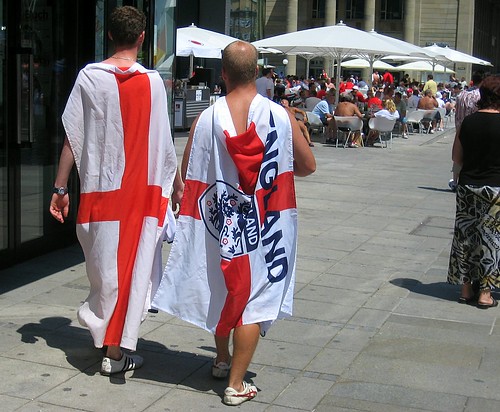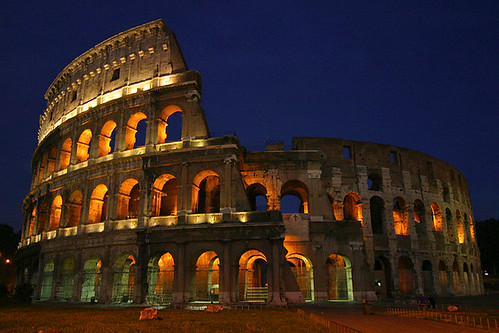Triesman slammed the Spanish, then we berated an Italian before surrendering to the Germans. But it’s a Macedonian England’s hierarchy should have studied before the country’s calamitous World Cup campaign. Alexander the Great didn’t get his name for nothing, but the way in which his empire imploded should have been a lesson to the FA long before its capitulation on Sunday.
The Lesson
Alexander the Great was born to be a leader. A son of Philip II of Macedon, Alexander enjoyed an unrivalled education under the tutelage of Aristotle. Aged just 19 he’d been handed the reigns of the empire, packing fearsome oratory skills and deadly military nous. Brandishing an terrifying army Alexander marmalised Persians, Egyptians and other enemies, stopping short of conquering India.
Yet Alexander’s empire was built on sand. His father had left monumental debts, and Alexander’s military had an equally voracious appetite. Eastern lands were conquered on commercial backhanders and land-grabs, and future subjects were, compared to those of the Romans, given an easy economic ride. Come Alexander’s death in 323 BC aged just 32, Macedonia was on its knees financially. He had also created an extremist authoritarian state, where he as ‘King of Kings’ ruled absolutely, killing any potential rivals.
As the empire swelled outwards on foreign money, Alexander’s selfish role left his beloved empire destitute, and it duly crumbled from within soon after his death. Building and military costs abroad had caused an economy and talent black hole back home.
From Bactria to Bloemfontein
Ring any bells? It should. England’s footballers were the sporting equivalent of Monty Python’s Mr Creosote in South Africa: sitting in gilded thrones and stroking swollen egos, unaware of their imminent doom. But the cats got fat for a reason: England’s Premiership may be the fastest, most exciting and widest-watched of all domestic club competitions. Yet in recent years it has become a billionaire’s toy box built on predicted figures and an ever-growing influx of foreign talent, at the expense of home-grown players and staff.
Just look at the nation’s biggest club. Fifteen years ago Manchester United, owned by an panel of Brits, produced some of the country’s best talent in a single generation: David Beckham, Paul Scholes and the Neville brothers all made their name in the era winning countless trophies while galvanising an England which, while winning nothing, performed with immeasurably more passion than Capello’s lame did in South Africa.
Fast forward and United, now owned by the American Glazer family, have produced almost no home-grown talent, relying on foreigners like Dimitar Berbatov, Nemanja Vidic and the da Silva brothers to win trophies which the owners are gambling the club’s future on each year. United have bought their British talent for huge sums, and even young blood now comes from all over the world.
Two Empires Built on Sand
Alexander built extensively during his reign, despite an economy teetering on the brink. Stone had been used almost exclusively for religious sites, but Alexander stamped his mark with entire cities made from it. Likewise the paradoxical expenditure of top-flight clubs on stadia and training facilities – 196m in 2008/09, “the third highest level of capital expenditure on developing projects since the formation of the Premier League in 1992” reports Contruction News – illustrates an industry out of touch with the global economy.
Players are paid astronomical sums while youth systems and the lower leagues struggle for air, just as Macedonian client kings were paid off rather than conquered. Owners from every continent are betting the future of England’s beloved clubs and national team on a whim, and the nation laps it up for three of every four years. But when it comes to the crunch, just as when Alexander died, everyone discovers an empire built on sand, suffocated by its need to spread as far wide as possible.
That Sunday’s cringing coup de gras was delivered by a young German side whose clubs are still largely owned by local members, with an emphasis on stability, was all the more telling. Alexander’s fateful exploits were studied by the Romans, who imposed strict tax laws and a ruthless government based in Rome to build an empire lasting centuries. Unless England’s ruling bodies follow suit and impose stricter rules on the running of clubs, tighter measures on ‘fit and proper’ owners, and enforced investment in youth leagues, systems and facilities, England fans will be getting the Bloemfontein blues for years to come.
Other lessons from the ancient world:
- Clegg and Cameron: Britain’s Spartan Kingship
- Four Ancient Lessons for Barack Obama in Afghanistan
- From Soccer City to the Acropolis: The Ancient World’s Greatest Stadia

